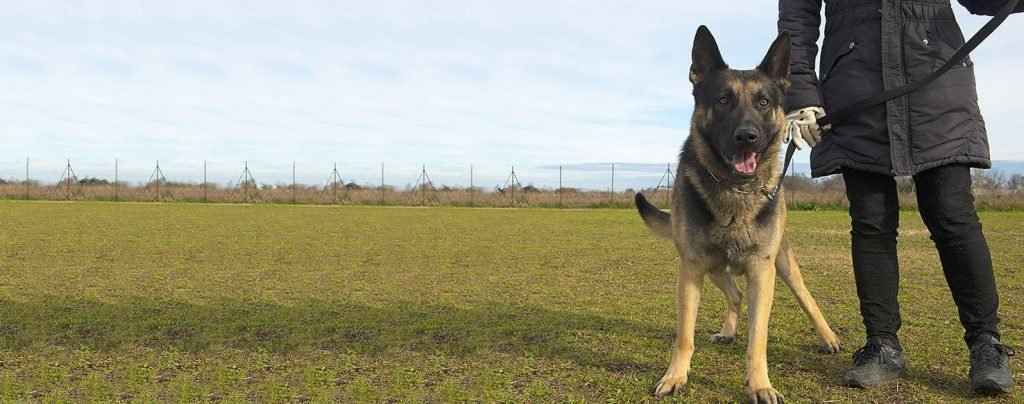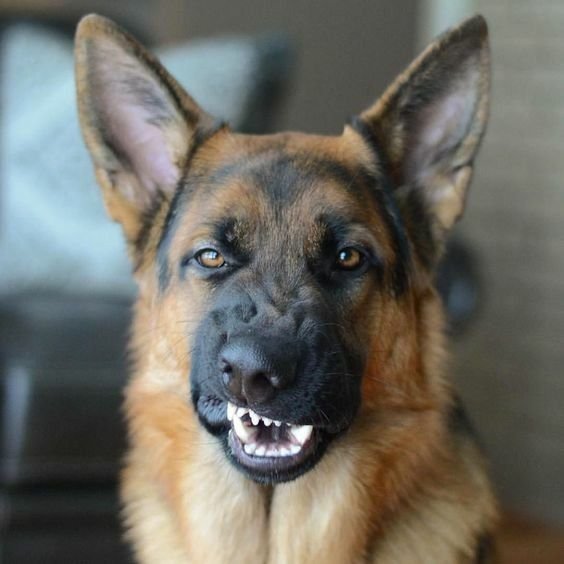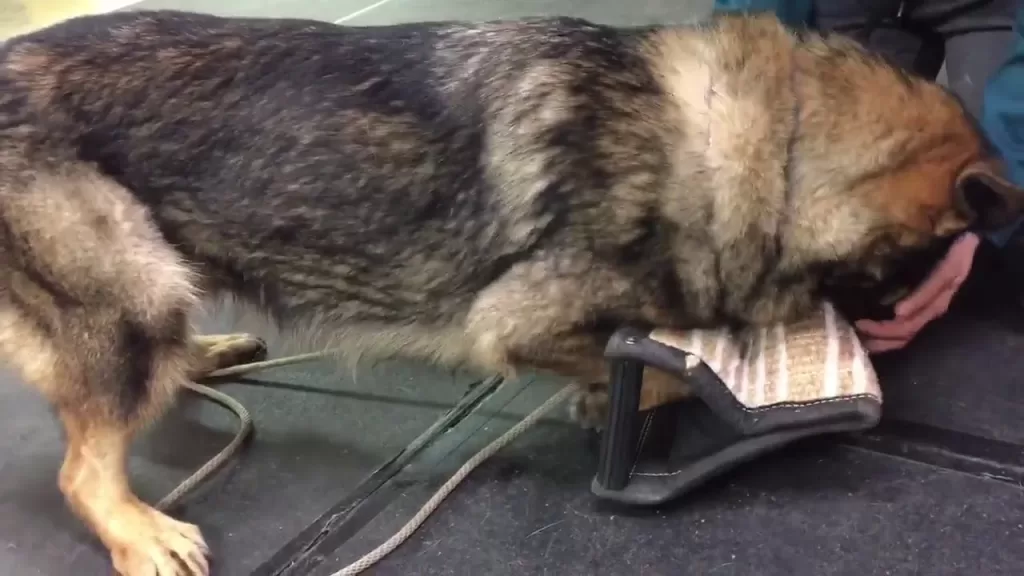Many dog owners are surprised about their possessive German shepherd dog, especially when their beloved pet starts screaming or biting when they try to remove a startled toy or food bowl.
Table of Contents
The behavioral term for this is possession aggression and it is a very common dog aggression behavior.
Acquisition aggression can develop as a means of survival in which dogs are allowed to roam freely or are allowed to roam freely.

Lack of adequate training for puppies, which show these symptoms, strengthens their possessive behavior and aggressive dog behavior intensifies over time.
Sudden Possessive Aggression in Dogs
This behavior arises from the natural instinct to express anxiety or fear over a perceived threat, which can lead to serious problems in the future.
Captive dogs may eventually resort to screaming, biting, and biting to keep other humans and animals away.
Possession aggression occurs only when the dog is protecting an object. Signs of possession aggression are a component of dominant aggression that observes other bad behaviors.
| Reason | Description |
|---|---|
| Pain | If your German Shepherd is in pain, they may become aggressive as a way to protect themselves. This is especially true if they are in pain from an injury or illness that they cannot communicate to you. |
| Fear | If your German Shepherd is afraid, they may become aggressive as a way to defend themselves. This could be due to a new person or animal in the home, a loud noise, or a sudden change in their environment. |
| Lack of socialization | If your German Shepherd was not properly socialized as a puppy, they may be more likely to become aggressive. This is because they will not have learned how to interact with other people and animals in a positive way. |
| Resource guarding | If your German Shepherd is possessive of food, toys, or other resources, they may become aggressive if they feel that their resources are being threatened. This is a natural behavior for dogs, but it can be problematic if it is not managed properly. |
| Medical conditions | Some medical conditions, such as brain tumors or hormonal imbalances, can cause aggression in dogs. If you are concerned that your German Shepherd’s aggression may be due to a medical condition, it is important to take them to the vet for a checkup. |

Acquisition aggression treatment has many options. If the object is unnecessary, it can be removed from the house like a toy.
As a dog owner, you play a key role in eliminating fear and aggressive behavior. It is important that you do not feed your dog’s aggressive behavior by being aggressive towards your dog. The best way to handle aggression is to take it all together.
Also Read: How to Take Care of Newborn German Shepherd Puppies and Mother
The main step with the possession dog is to keep the objects on the dog out of the way. The dog’s possession comes partly from asking for attention. Ignoring only works with mild proprietary behavior.
Continue feeding by hand and appreciate if signs of possession do not appear. Guarding toys can be improved by getting and releasing games that end with prizes.
My Dog Growls at me when I try to take something away
Teaching your puppy to earn food, treats, and toys must help your dog develop self-control, respect, and good manners.
You can teach a dog to respond to a “Leave” command when he has something in his mouth.
Grab a treat and call out the command “leave” as he goes over the object and walks towards you.
Reward him with treatment for his obedience and remove the object as soon as possible.
“Give” is another useful command to deal with possession in your dog.
Treating Possessive German Shepherd
You can teach them to give when your dog has a toy in its mouth. Reward him with a treat and let him have the toy back.
If your dog shows a persistent obsession with his food, toys, or your owner, and it is aggressive, re-training of dog behavior is usually necessary.
Consulting a professional dog trainer is usually the best option to correct complex possession behavior.
It is important not to let your dog go out with possessive behavior for too long, as it will only get worse over time. Respond quickly to this behavior rather than late.
Here are some tips on how to correct your possessive German Shepherd dog:
- Start by identifying the triggers. What are the things that seem to trigger your dog’s possessive behavior? Is it food, toys, or attention? Once you know the triggers, you can start to work on desensitizing your dog to them.
- Teach your dog “leave it” and “drop it” commands. These commands are essential for teaching your dog to give up objects without becoming aggressive. You can start by teaching your dog “leave it” with low-value items, such as a toy or a treat. Once your dog has mastered “leave it,” you can move on to teaching them “drop it.”
- Never punish your dog for being possessive. Punishment will only make the problem worse. Instead, focus on rewarding your dog for good behavior, such as when they give up an object without being asked.
- Manage the environment. If your dog is possessive of food, you can try feeding them in a crate or a puzzle toy. This will help to prevent them from becoming possessive over their food. You can also try keeping high-value items out of reach of your dog when you are not around.
- Get professional help if needed. If you are struggling to correct your dog’s possessive behavior on your own, you may want to consider getting professional help from a dog trainer or behaviorist.
Here are some additional and general tips:
- Be consistent. It is important to be consistent with your training. If you are inconsistent, your dog will not know what to expect and they will be more likely to become possessive.
- Be patient. It takes time and patience to correct possessive behavior. Do not get discouraged if your dog does not learn right away. Just keep working with them and eventually, they will learn.
- Be positive. Use positive reinforcement when training your dog. This means rewarding them for good behavior and ignoring bad behavior. Positive reinforcement will help your dog to learn faster and they will be more likely to enjoy training.

